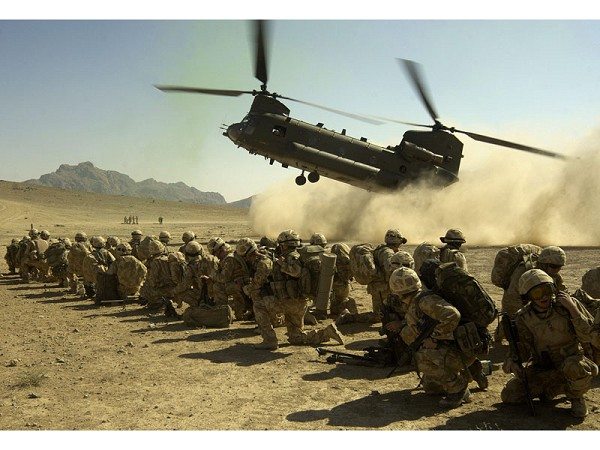NATO-led forces are making “tangible progress” in the Afghanistan war with Taliban insurgents forced out of key southern strongholds, the Pentagon said Friday in an upbeat report.
Although the US military acknowledged battlefield gains over the past six months were tentative and “fragile,” it painted a more positive picture than the Pentagon’s previous reports to Congress.
The findings come at a crucial moment in the nine-year-old war as the United States prepares to begin a drawdown in July of its 100,000-strong force and as the Afghan government plans to take over security in some districts.
The Pentagon, however, warned that the insurgents still enjoyed a crucial lifeline through safe havens in neighboring Pakistan, that the Kabul government was plagued by corruption and that a shortage of trainers for Afghan forces could undercut efforts to hand over security.
After a surge of US and allied reinforcements last year, coalition and Afghan troops have made “tangible progress, arresting the insurgents’ momentum in much of the country and reversing it in a number of important areas,” said the latest report.
Coalition forces have put “unprecedented pressure on the insurgency,” disrupting their command structure, breaking supply networks and clearing safe havens, said the report, which covers the period from October 1 to March 31.
The last Pentagon report to Congress on the war in November described only “uneven” progress and bleak assessments in 2009 described the situation as deteriorating.
By losing control of Pashtun areas in Kandahar and Helmand provinces, the Taliban had suffered a “strategic setback” in its heartland, said a senior administration official.
“The situation on the ground is fundamentally changing,” the official, who spoke on condition of anonymity, told reporters.
The Taliban would make a concerted effort in coming months to try to reassert itself, he said.
“The pushback of the Taliban out of these key areas last year is really a strategic defeat for the Taliban. They’re going to have to respond,” the official said.
The outcome of the Taliban’s expected counter-offensive this summer will provide an acid test of the war strategy, and US commanders are hoping violence will soon begin to decline as the insurgency weakens.
“In the coming months at some point, the violence level may peak,” said the official, saying the shift could come within 12 months.
US officers believe a crucial tipping point in the Iraq war was signified by a peak in violence there and then a gradual improvement in security after a troop surge in 2007.
The US official said the biggest challenge now for the war effort was whether the Afghan government could extend its authority and deliver basic services in areas where the Taliban had been rolled back.
The Pentagon said conditions were ready for Afghan forces to take the lead on security in a number of towns and districts outlined by Afghan President Hamid Karzai last month.
But it also repeated US concerns over insurgent havens over the border in Pakistan, beyond the reach of NATO troops.
“Insurgent capacity continues to be supported by sanctuaries and logistical support originating in Pakistan, and insurgents will likely retain operational momentum in areas where these support structures exist,” it said.
The presence of the safe havens threatens to undermine the war effort and has strained relations between Washington and Islamabad, with US officials frustrated at the Pakistani army’s reluctance to crack down on militants in North Waziristan.
The report also said Afghan forces were increasingly capable, with NATO hoping to build up the army and police to pave the way for the exit of foreign troops by 2014.
But it warned that a shortage of international trainers could derail growth targets for the Afghan National Security Forces (ANSF) and jeopardize a planned handover to Afghan forces.
Failure to ensure a sufficient number of trainers for Afghan forces “poses a strategic risk to ANSF growth and an increased risk to transition,” it said.
The Afghan forces still are heavily reliant on NATO for logistical and other support, with no units yet able to operate independently. And despite high numbers of new recruits, Kabul officials are struggling to stem troubling rates of desertion in the army and police.










